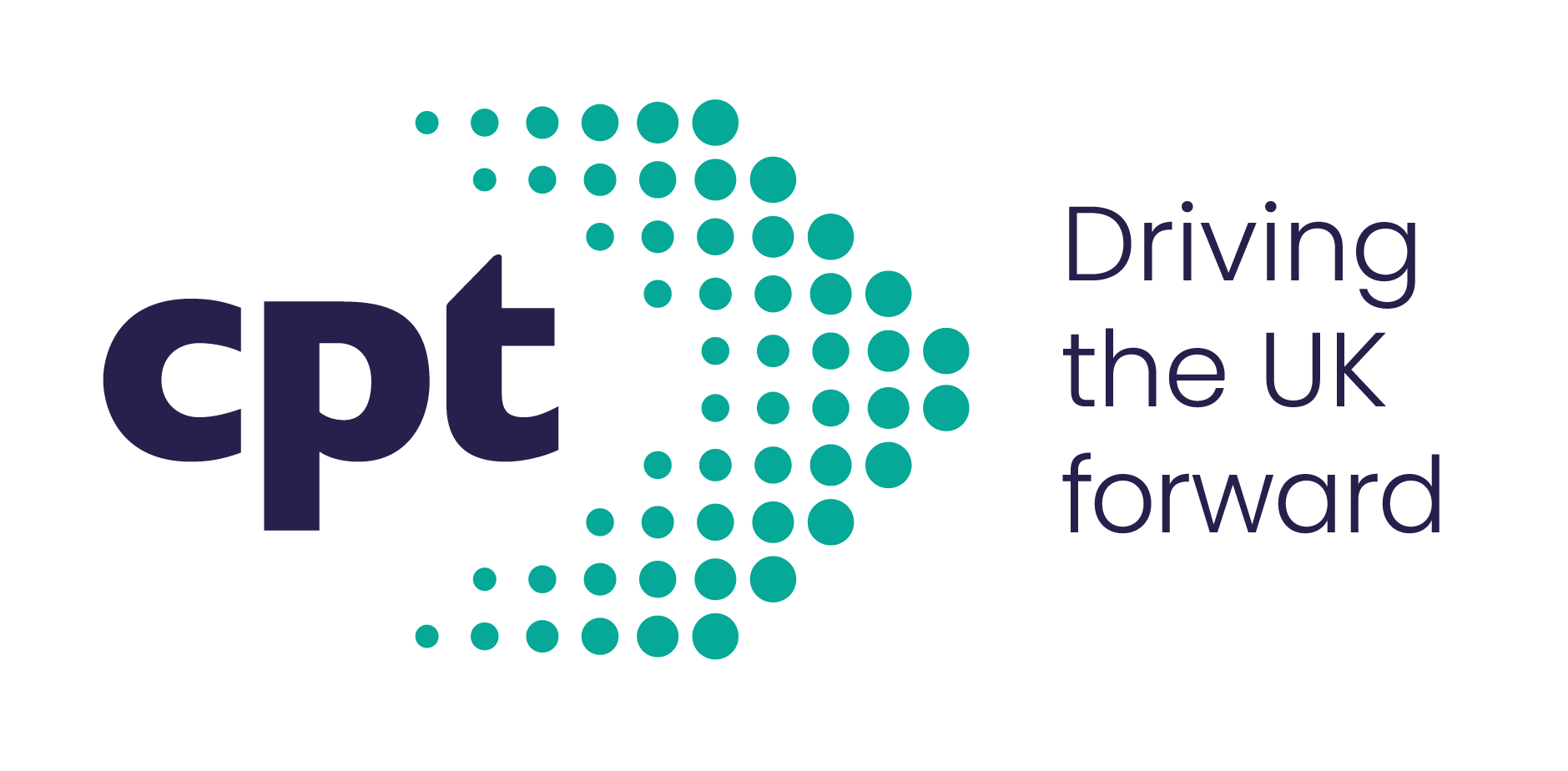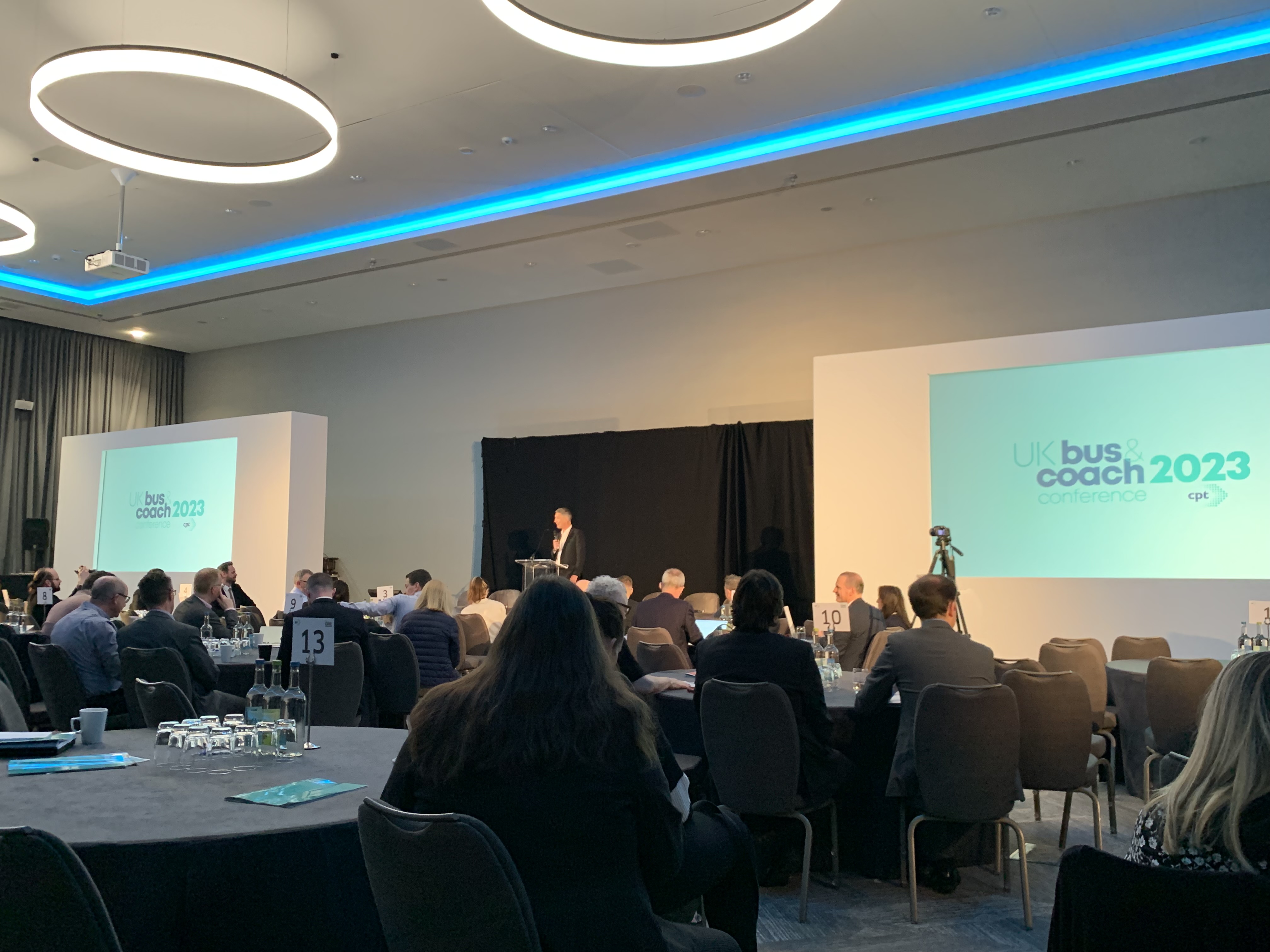 The CPT UK Bus & Coach Conference 2023 was truly an event to remember! With engaging presentations, panel discussions, and lots of incredible innovation showcased, the event was undoubtedly a great success.
The CPT UK Bus & Coach Conference 2023 was truly an event to remember! With engaging presentations, panel discussions, and lots of incredible innovation showcased, the event was undoubtedly a great success.
In this article, we highlight five key takeaways from the conference that are sure to shape the way we think about buses and coaches in the years ahead. So, fasten your seatbelts…
1. THE DRIVER SHORTAGE REMAINS A TALL ORDER – BUT HOPE’S ON THE HORIZON
It’s not ‘new news’ that the driver shortage has significantly impacted our industry since it reared its ugly head in 2021. Thanks to a variety of factors such as COVID-19, Brexit, and changes to licensing requirements, we’ve seen the shortage cause reduced services, delays, and cancelled routes for passengers. For PTOs, the staffing challenge has also increased costs by having to offer higher wages and incentives to attract and retain drivers.
It’s been a long old road and a tough one to tackle at that. But fear not, there’s light on the horizon.
Back in 2021, UK bus drivers had fallen by a staggering 30,000 since 2019. A more recent survey by the Confederation of Passenger Transport estimates we now need around 10,000 new drivers to address this shortage. Good progress has absolutely been made, but there’s more to do to get the industry back on track. So, what can be done to make ground?
Initiatives like the ‘Thank You Driver’ campaign and the Bus Back Better Strategy have been a solid jumping-off point, but according to our panellists who put this topic to rights, we’ll be missing a trick if we don’t strategically target a wider pool of new recruits.
According to Dal Kalirai from National Express and Women in Transport, only 11% of bus drivers in the UK are female and the average age of our drivers sits at 52. Both of which means there’s a huge amount of untapped resource in younger and/or female drivers that could help with the shortfall. By offering training programmes and internships to reduce barriers to entering the industry for younger recruits, plus targeted recruitment drives at females, we could both plug the gap and create more diversity within our industry.
2. BUSES ROLE IN BREAKING THE POVERTY LOOP
 With increased costs, low levels of concessionary travel and less public spending forcing service reductions, our panel at CPT spoke passionately about the current state of our industry and its impact on the poverty loop in our country.
With increased costs, low levels of concessionary travel and less public spending forcing service reductions, our panel at CPT spoke passionately about the current state of our industry and its impact on the poverty loop in our country.
As the primary mode of travel into city centres and for those on lower incomes, insufficient public transport can lead to people being unable to get to work which can result in job loss, increased benefit claims, and inability to go to job interviews to subsequently come off benefits.
So, what needs to happen to solve this? It’s simple: reliable buses, accessible routes, various fare payment methods and reasonable prices. If we can get these things down–pat, not only will our industry benefit, but so too will our economy.
But according to our experts at the conference, delivering the above can only be achieved by a collective effort. It needs the involvement of everyone: charities, PTOs, PTAs, individuals, and most importantly, the continued support of our government.
Operators need more consistent and sustainable funding from the government to encourage ridership and to ensure there are services that fulfil communities’ needs. With initiatives and campaigns such as the £2 bus fare incentive and the ‘Making Public Transport Safer’ campaign by Bus Users UK and Women in Transport, ridership can also be improved amongst a wider range of people. Finally, minimum bus scheduling requirements and better technology both on and off board will help create frictionless travel and get people back on board, and where they need to go.
3. HOW TO SUCCESFULLY PREP FOR A ZERO EMISSIONS FLEET
 As our industry works to the target of all UK buses being zero-emission by 2040, there’s multiple factors for operators to consider when switching to an electric fleet, particularly for SMEs and those in more rural areas.
As our industry works to the target of all UK buses being zero-emission by 2040, there’s multiple factors for operators to consider when switching to an electric fleet, particularly for SMEs and those in more rural areas.
So, what will help with the transition? Well, as the old saying goes; ‘by failing to prepare, you’re preparing to fail.’ So, our takeaway here is simple: plan, plan and then (no prizes for guessing!), plan some more.
According to our panel, if you can identify challenges early doors – be they budgetary or logistical – and work with the government and other stakeholders in advance, the transition can be much smoother.
Firstly, financial implications will need to be bottomed out in the early planning stages to cover the upfront costs of electric buses, which are currently still higher than diesel vehicles, (though these are expected to close as battery prices continue to fall.) For those requiring financial support, with the next zero-emissions bus grant predicted to be around the corner it’s worthwhile taking the time and resource to budget, plan and craft your proposals in the short term, to benefit in the long term. A third financial option for operators to iron out is whether to utilise available electric bus leasing companies to lessen the risk to the operator and keep costs down.
Planning charging points along bus routes will also be make or break for successful fleet management. If done correctly in built-up areas, buses should be able to recharge during periods of low demand so as not to impact on service levels. For those in more remote areas, there’s added complexity when you consider route length versus electric vehicle mileage.
Some coastline networks can typically travel 650km in a day, so rural operators must carefully manage the balance between electric vehicle mileage and route length, the installation of charging infrastructure in rented or older buildings and selecting buses with optimal mileage capacity for these journeys.
4. POSSIBLE NEW MARKETS FOR BUS & COACH OPERATORS
It’s no secret that passenger travel habits have changed since the pandemic. With more people working from home and shopping online, we’re seeing less footfall in our towns and city centres. All of which means we can’t rely on yesterday’s travel habits when we look to the future.
So, where’s the opportunity of tomorrow?
Matt Clayson from Readygroup explained that they see the future of coaches as changing the demographic of the customer and offering different types of excursions to attract a younger audience and the passenger of tomorrow. Trips within the coach sector are generally declining as the population ages, so they must adapt to a younger target audience to get people on seats. Through partnering with local attractions such as gin distilleries and boutique hotels, Readygroup feels there’s greater opportunity.
There’s also a huge amount of opportunity within our health care sector for buses and coaches. With the NHS introducing integrated care systems and boards, on which sits the Local Authority and all the care providers within a given area, it’s the best opportunity for operators to reach out and establish a solution for a persistent problem they’ve been facing and which the bus and coach industry is best placed to solve, which is of course; parking.
Once your foot is in the door, the prize is huge as the employment and reason for travel is already there, so demand isn’t something to be generated. It’s simply a case of tapping into an established need by promoting bus travel and making it appear more attractive than cars.
5. THE ROAD AHEAD: PREDICTIONS ON THE FUTURE IMPACT OF TECH ON OUR INDUSTRY
 According to our Chief Commercial Officer, Richard Blackburn-Hughes, we’ll be seeing a number of changes which will shape how we travel in the next 20 years.
According to our Chief Commercial Officer, Richard Blackburn-Hughes, we’ll be seeing a number of changes which will shape how we travel in the next 20 years.
Firstly, advances in AI and robotics are predicted to drive a gradual inclination towards self-driving buses, therefore reducing the need for drivers in the future. (‘Murphy’s law there aren’t more around now to help with the driver shortage,’ we hear you say.)
Already implemented in Edinburgh and with more operators seizing early opportunities to expand into the self-driving market with £42 million in government funding granted, passengers best get used to seeing empty driver cabins on the road!
Not only this, but over the next 20 years we’ll see far more electric coaches and buses on the road, more on-demand bus and coach services, enhanced passenger amenities such as more charging points and Wi-Fi on board, advanced safety features and more eco-friendly materials and designs. With all of this to come, the future looks bright for encouraging ridership and frictionless travel for the passengers of the future.

